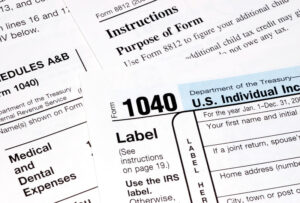Does a low credit score have you worried about the future? The good news is that your credit score doesn’t have to stay in a bad place forever. However, you will need to do some work and be willing to be patient if you want to get it to a good place. Being smart about repayment is the major way you can start making changes that will show up on your credit report. Take a look at the four tips for repayment that will rescue your credit score.
Stay Current with Your Debt
The biggest thing to focus on while trying to rebuild your credit score is just staying current with the balances that are owed. It’s not exactly a glamorous or quick-fix type of answer. However, it is the only way. You can’t dig yourself out of a financial hole unless you’re willing to focus on making steady, complete payments month after month. All of the other tips that follow will be helpful. However, they won’t do much unless you follow this tip first.
Tackle Your Payment History
Is a shaky payment history dragging your credit score down? Payment history actually has the biggest impact on your credit score. That’s why you can’t afford to sit around and do nothing if you’re behind on any of your accounts. It is so important that you contact your creditors if you are behind on payments. You should ask creditors if they would be willing to rescind any reported delinquencies if you agree to pay back all that is owed. Some creditors will actually be willing to do this. However, not every creditor will be open to this idea. It still doesn’t hurt to ask! You will still be in better shape once you become current on all of your accounts even if creditors won’t agree to rescind reported delinquencies. That’s because a longer period of delinquency actually harms your credit score more than a shorter period of delinquency. You should know that a missed payment will stay on your credit report for up to seven years. You can start to undo the damage by acting as quickly as possible.
Make Micropayments
You shouldn’t be waiting until your full bill is due to make payments if you’re in a mode of improving your credit score. You can actually make multiple small payments throughout the month. This will help to keep your balances down and improve your credit score. In fact, you may even want to start using your online accounts to pay new balances off after every purchase you make. How will making multiple payments throughout the month help to improve your credit score? You don’t actually get any bonus points just for the act of making multiple payments. However, it will help you to pay on time and avoid late fees. Micropayments are also great for helping your balances decrease faster. Micropayments can even contribute to a low utilization rate.
Focus on Earning a Low Utilization Rate
Credit utilization is the ratio of what you owe in credit card balances to the balance limits that are on your cards. It basically measures the amount of credit you are actually using compared to what you could be using. Having a low credit utilization rate will help to increase your credit score. How can you achieve this? The easiest way is to ask for an increase in your credit limit even though you have no intention of actually increasing your monthly balance.
Every Step Counts When You’re Improving Your Credit Score
It’s important to remember that you probably aren’t going to see a huge leap in your score immediately after you implement some of these tips. Slow and steady truly wins the race when it comes to raising your credit score. The one thing that’s for certain is that your future self will thank you once your score is on the rise and your personal and financial goals are within reach due to your stellar credit score.
SOURCES:
https://www.experian.com/blogs/ask-experian/credit-education/improving-credit/improve-credit-score/
https://www.nerdwallet.com/blog/finance/raise-credit-score-fast/








